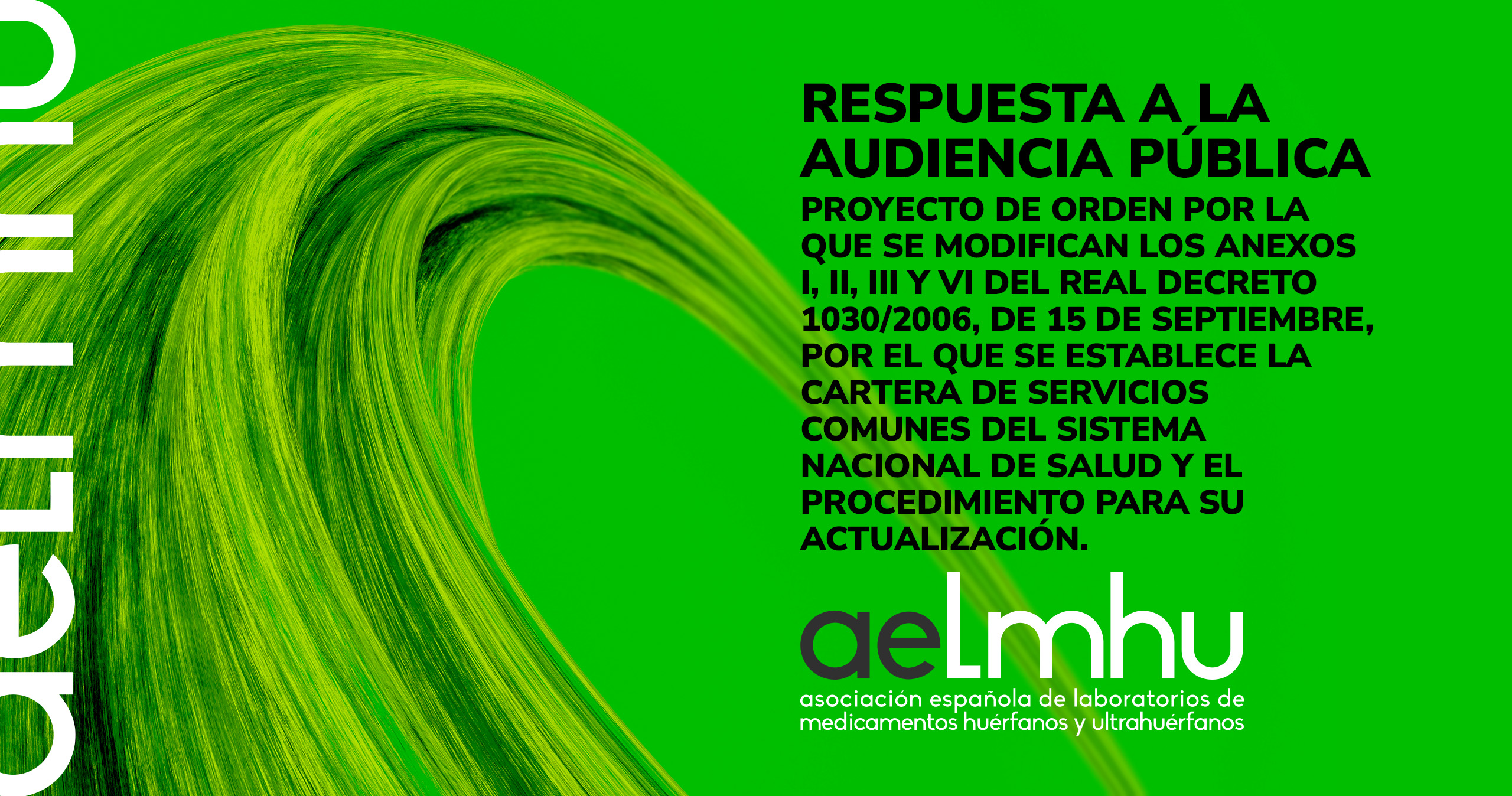The Spanish Association of Orphan and Ultra Orphan Drug Laboratories (AELMHU) has sent the Ministry of Health its contributions to the Public Consultation prior to the draft Royal Decree establishing the Portfolio of Common Services of the National Health System.
AELMHU recognizes the efforts of the Ministry of Health in the field of preventive health, driven by the emergence and growth in recent years of new advances in techniques and analytical tools available, and its commitment to improve efficiency and equity in early diagnosis through the inclusion of as many rare diseases as possible in neonatal screening. However, it should be noted that there is great inequity between the Autonomous Communities due to the differences that exist between them in this area. Some have incorporated more than 40 pathologies into the neonatal screening tests, while others only have the 7 diseases that were included in the common services portfolio until two years ago. On the other hand, since 2006, only 4 new pathologies have been included in the common services portfolio.
For this reason, and after analyzing the public hearing, the Association makes the following recommendations:
- It is necessary to continue incorporating more diseases into the neonatal screening program in line with the advances made in some Autonomous Communities, guaranteeing equity throughout the territory, while at the same time limiting and reducing the time required to update the common services portfolio.
- In this same sense, collaboration with regional governments in the research and development of analytical techniques and tools should be promoted, since early detection is a fundamental factor, both for the approach and progression of the diseases, and for the quality of life of patients and their family, social and work environment.
- Regional evaluations should be carried out to speed up the future inclusion of new pathologies in the screening list and, at the same time, to promote the development by the Ministry of Health of an information system that allows the regional and national levels to carry out a correct follow-up and evaluation of these population-based programs.
- Finally, it is necessary to promote progress in the preparation of an annual technical report on the evaluation of the screening program to be made available to the public and the administrations on their web page as soon as possible is key to the correct approach to rare diseases, as well as to establish agreed protocols within the framework of the Interterritorial Council of the National Health System that allow screening processes to be addressed in all the autonomous communities, in a homogeneous manner and in accordance with quality criteria.
Consult the complete text sent to the Ministry of Health
